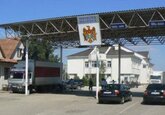
More than 100 Moldovan companies can become local suppliers of products for foreign companies that have invested in Moldova.
This was reported by the press service of the Free Economic Zone "Balti", noting that this will allow residents of FEZ "Balti" to get reliable local suppliers, and local companies - to receive new orders with high added value. This was discussed during the series of seminars launched today in Chisinau within the framework of the “Development Program for Local Suppliers”, which is being implemented by the FEZ “Balti” with the support of the Ministry of Economy of Moldova. The main goal of the program is to increase the competitiveness of Moldovan companies to a level at which they would be attractive to multinational (CMN) investors in the automotive sector operating in Moldova. The development program for local suppliers covers 100 Moldovan companies - potential suppliers of the 3rd and 4th level, and is designed to facilitate their business relationships with residents of FEZ Balti so that they can become part of the supply chain for multinational investors in the automotive sector. FEZ "Balti" Administrator Marin Ciobanu noted that multinational companies in the automotive industry all over the world, including those operating in the Free Enterprise Zone “Balti”, faced an unprecedented crisis. During the COVID-19 pandemic, supply chains were disrupted, the timing of the supply of materials was disrupted, which had an extremely negative impact on the production process. Under the new conditions, companies are revising the conditions for ensuring their production, first of all, from the point of view of finding the nearest suppliers. “This is a unique chance for Moldovan companies to become part of the chain of global car manufacturers. But for this they must correspond to the level of organization of their own production and, especially, to the level of quality of the products. For this very purpose, together with the Ministry of Infrastructure Economy, a Development Program for Local Suppliers was created, within the framework of which this series of seminars was organized,” said Marin Ciobanu. The seminars are conducted by specially invited experienced experts from TÜV Karpat (a member of the TÜV Thüringen group, Germania), accredited in the quality management system for the automotive industry (IATF). Trainings are aimed at improving the quality of operational and organizational activities. They are conducted by experts representing two specialist companies from Germany and the Czech Republic who have previously evaluated and selected participants for the Development Program for Local Suppliers. Director General of TÜV Karpat (member of TÜV Thüringen, Germany) Iulia Ionescu stressed that this program is unique, and many countries, in turn, would like to implement a similar program to support SMEs. During the seminars, topics such as: Maintenance of the workplace, tools and equipment (5S principles) are discussed. Visual communication for employees; Occupational Safety and Health. Work instructions; Collection and storage of finished products, waste and work-in-progress products; Manufacturing, planning and monitoring of production facilities. Traceability of finished products and quality control. Participation in each of the four seminars was confirmed by 25 to 35 local companies participating in the program. In addition to improving the operational and organizational aspects covered by each of the 4 training courses, participating companies will have the opportunity to familiarize themselves with the requirements of the Automotive Industry Quality Management System and other international quality management systems. Implementation of the Automotive Industry Quality Management System and other quality management systems is in most cases a mandatory requirement for CMNs to their suppliers of direct and indirect subcomponents. Free economic zone “Balti” was established in March 2010. Over 11 years of activity, 78 residents have been registered in the zone, the total investment of which exceeds $ 222 million. During this time, 11,600 jobs have been created with an average salary of 8600 lei. The volume of industrial production is currently 6.9 billion lei per year, total sales - 7.1 billion lei per year. FEZ “Balti” includes 19 subzones, 3 in Balti, the rest - throughout the country. // 07.09.2021 — InfoMarket







